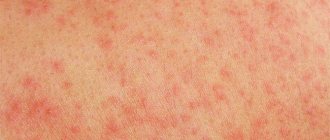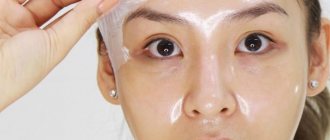Allergy pills are designed to eliminate specific negative symptoms resulting from a reaction to a specific allergen. Many substances can act as irritants:
- plant pollen;
- food products;
- cosmetical tools;
- household chemicals;
- dust;
- pet hair;
- etc.
Allergy medications significantly alleviate the condition of people diagnosed with this pathology, improving their quality of life and allowing them to remain productive.
The principle of action of allergy remedies
The modern pharmacy market is represented by high-quality allergy medications (antihistamines, antihistamines).
There are 3 generations of allergy medications. What are the fundamental differences?
Some of the drugs are classified as homeopathic and hormone-containing drugs. The selection of medications is carried out by an allergist after collecting an anamnesis, external examination of the patient and conducting laboratory diagnostic tests (including allergy tests).
The mechanism of action of antihistamines is to block histamine receptors, which leads to the elimination of negative symptoms.
Reference.
Allergy in medicine is usually called the response of the human immune system to any irritating factor (allergen). Contact with an irritant and/or with many irritants leads to the active state of a biologically active component - histamine (an allergy mediator found in most tissues of the body). This biologically active substance is not dangerous to the body if its activity is not observed. In its active state, histamine leads to disruption of the functions of organs and systems - nervous, muscular, respiratory, digestive, etc.
As a result, the following symptoms may occur:
- Watery eyes, copious discharge from the sinuses.
- Impaired nasal breathing.
- Sneezing, coughing.
- Bronchospasm/breathing disorder.
- Activation of the process of secretion of gastric juice.
- Disturbance of the digestion process and stool (diarrhea).
- Dilatation of blood vessels.
- Edema.
- Skin rashes.
- Headaches, dizziness, fainting.
- Muscle spasms.
- Blood pressure surges.
- Arrhythmia.
- Dry mouth, voice changes.
- Chest/heart pain and more.
Attention!
The condition requires taking special antihistamines that eliminate the negative manifestations of the disease. Experts recommend using modern high-quality medicines to treat allergies of various origins and not experimenting with traditional recipes.
Why are antihistamines needed?
The occurrence of allergies is caused by a violent reaction of the body to contact with certain substances called allergens. The impact of allergens on certain cells of the body provokes the active production of histamine. Histamine is a substance found inside mast cells. In a healthy person, histamine remains inside the cells and is not released. But when it comes to allergies, histamine is actively released, forming allergic inflammation.
Histamine release can manifest itself in different ways:
- swelling of soft tissues;
- cough;
- runny nose;
- lacrimation;
- decreased blood pressure;
- the appearance of a rash;
- bronchospasm.
Antihistamines were created not only to regulate the production of histamine by mast cells, but also to neutralize the volumes of the substance that have already been produced and create inflammation.
What is the best allergy medicine?
In medicine there is no concept of “best” and “worst”. The drugs of each group have their own advantages, disadvantages and characteristic features. When prescribing them, many factors are taken into account, including the patient’s age, the presence or absence of concomitant diseases, as well as the degree and type of allergy. What suits one person may not only be of no benefit to another, but even harmful.
Important!
Allergic diseases can always be treated with medications. This can be taking tablets individually (monotherapy) or complex treatment. In this case, the allergy drug is part of a complex treatment that includes drugs belonging to other groups.
Gistalong for allergies
The presence of the prefix “long” in the name of the drug indicates that it is a long-acting drug. Taking Gistalong allows you to relieve spasms of smooth muscles and reduce capillary permeability. An antihistamine is prescribed for:
- Rhinitis;
- Allergic conjunctivitis;
- Quincke's edema (angioneurotic);
- Allergic rash;
- Anaphylactic reactions.
For bronchial asthma, Gistalong is often included in the complex of prescribed therapy as one of the components.
To relieve allergy attacks, Gistalong should be taken one hour before meals or two hours after meals. Children under 12 years of age are recommended to take 5 mg of the substance per day. Adults take 10 mg once daily.
Manufacturers of the product list contraindications as pregnancy, lactation, diagnosed hypokalemia and liver failure.
Complications of allergies in children
In the absence of competent measures, diseases and conditions that are difficult to treat may develop. Many of them significantly worsen the child’s health, reduce his quality of life and often lead to disability, these are:
- Chronic rhinitis.
- Persistent headaches.
- Deterioration of memory and concentration.
- Autoimmune disorders.
- Bronchial asthma, anaphylactic shock or asphyxia.
Allergies in children of any age require timely contact with a qualified specialist and constant monitoring. Only an experienced pediatric allergist can prescribe adequate treatment and provide competent medical supervision.
Tavegil: who is it suitable for?
Tavegil belongs to the class of modern antiallergic drugs. It gives the first therapeutic effect within a short time after entering the gastrointestinal tract. Indications for the use of Tavegil may include:
- hay fever;
- eczema;
- itchy dermatitis, including urticaria;
- iridocyclitis;
- rhinitis of allergic etiology.
However, this drug should not be used with the following contraindications:
- asthma;
- any pathologies of the lungs and bronchioles;
- pyloric stenosis;
- glaucoma;
- thyrotoxicosis;
- hypertension;
- prostatic hyperplasia.
The use of Tavegil is also contraindicated for children under 6 years of age and pregnant women.
Remedies for allergies during pregnancy
Negative signs of allergies are not just the appearance of unpleasant symptoms, but a high probability of developing autoimmune disorders. This factor should be taken into account by women carrying a child. Therefore, if characteristic symptoms of the disease appear, you should consult a doctor and start taking the medications prescribed by the specialist.
Important!
It is prohibited to buy or take any
allergy medications
without consulting a doctor and undergoing examinations. Self-medication is not acceptable! This is especially true for pregnant women. It should also be taken into account that many drugs are prohibited during pregnancy.
Properly selected, high-quality, modern medicines cannot cause serious harm to the mother’s body and do not affect the development of the fetus. Such drugs, if necessary, are also prescribed to breastfeeding women.
Zodak
The active ingredient of Zodak is cetirizine. One tablet contains 10 mg of the active ingredient. An antihistamine is prescribed for:
- allergic rhinitis;
- allergic conjunctivitis;
- seasonal fever;
- allergic rashes;
- hives;
- Quincke's edema.
The minimum age of patients who can relieve allergic syndrome using Zodak is 6 years. Eating does not affect the activity of the component in any way, so Zodak can be taken both before and during meals. In order for cetirizine to have an antihistamine effect in a timely manner, the tablet must be taken with 150 ml of water.
It is enough to take Zodak once a day. To ensure that the effect lasts throughout the day, it is important to take the tablet at the same time.
Possible side effects include:
- drowsiness;
- weakness;
- feeling of dry mouth.
If negative reactions occur, it is necessary to discuss with your doctor the option of replacing the drug.
How to choose allergy medications?
Now there are a lot of different antihistamines. We offer both expensive original medicines and their more affordable popular analogues. When purchasing, you should follow the recommendations of your doctor and do not replace your own prescribed medication with a similar drug.
Selecting a medicine for allergies is the prerogative of an allergist. A specialist is able to accurately identify the allergen, identify the type and degree of the disease, and, based on all the data, select the best option for successfully blocking histamine receptors.
The main rule to follow
- this is an appeal to a trusted drug supplier. Only in this case can you avoid counterfeiting and not overpay for goods of dubious origin. The network of social pharmacies Stolichki guarantees the authenticity of medicines and offers a wide range of medicines at affordable prices.
Suprastin: what helps
Suprastin is a drug that has long been a part of the lives of allergy sufferers and copes well with its functions, including:
- stopping allergic rhinitis;
- getting rid of hives;
- relief of skin itching;
- reducing the severity of the reaction to an insect bite.
An undeniable advantage of Suprastin is its safety in relation to pregnant women. Therefore, it is often prescribed to expectant mothers for seasonal rhinitis. One contraindication should be noted separately: Suprastin should not be taken by patients with glaucoma.
For laryngitis. bronchitis and tracheitis, the prescription of Suprastin must be accompanied by a mandatory condition - the patient must drink plenty of fluids daily. This is due to the fact that a side effect of the drug is drying out of the mucous membranes. Healthy people can easily put up with this, but patients with laryngitis or bronchitis must independently maintain the rheological properties of the sputum discharge so as not to get a complication in the form of pneumonia.
What to do if you are allergic to medications?
How to treat drug allergies? The basic principles of treatment are the elimination of the allergen from consumption, taking antihistamines, dietary nutrition in the presence of a food allergy that aggravates the situation.
Pharmacies offer a wide selection of over-the-counter antihistamines that can always be kept in your medicine cabinet (Claritin, Suprastin, Diazolin, Citrek) and several prescription ones. But antihistamines are not all that a doctor can prescribe.
What to take if you are allergic to medications:
- decongestants - there are prescription and over-the-counter ones (for example, Sudafed, Citrek-D);
- steroids (nasal, inhaled, eye drops, oral);
- bronchodilators;
- mast cell stabilizers;
- leukotriene modifiers;
- activated carbon (or other sorbent) and calcium gluconate as additional agents.
Only a doctor can prescribe the right medications, especially for severe and potentially health-threatening manifestations.
Regardless of whether you or your loved ones have allergies, it is important to know what to do if you are allergic to a medicine. In case of mild skin manifestations that are not life-threatening, you must immediately make an appointment with a doctor (the NEARMEDIC clinic is open seven days a week from morning until late evening). In case of serious reactions (shock, Quincke's edema), you need to act immediately.
What to do with a drug allergy - emergency care:
- call an ambulance immediately;
- place the patient on a hard surface;
- Give any antihistamine you can find in your medicine cabinet, ideally by injection (always have antihistamines, even if no one has allergies);
- give the patient plenty of water to drink;
- if the medicine was taken orally, give activated carbon or another sorbent;
- if the condition worsens before the ambulance arrives, give 1 tablet of prednisolone.
Upon arrival of the ambulance, the doctor will administer adrenaline and hormonal drugs to the patient, after which he will be hospitalized. To quickly remove the allergen, intradroplet administration of cleansing preparations is often used. After a serious reaction, the dangerous drug and its cross-allergens are completely removed from use.
To reduce the likelihood of allergic reactions, do not prescribe medications yourself. When consulting with your doctor before getting a prescription for any medical condition, tell us if you have:
- any allergic reactions;
- reactions to any drugs in the past;
- suspicious symptoms (if the diagnosis has not yet been made) - seasonal lacrimation and rhinitis, sore throat, urticaria, itching, especially after medications;
- about relatives with allergic diseases;
- about fungal infections of nails and skin (can cause hidden sensitization to penicillin).










